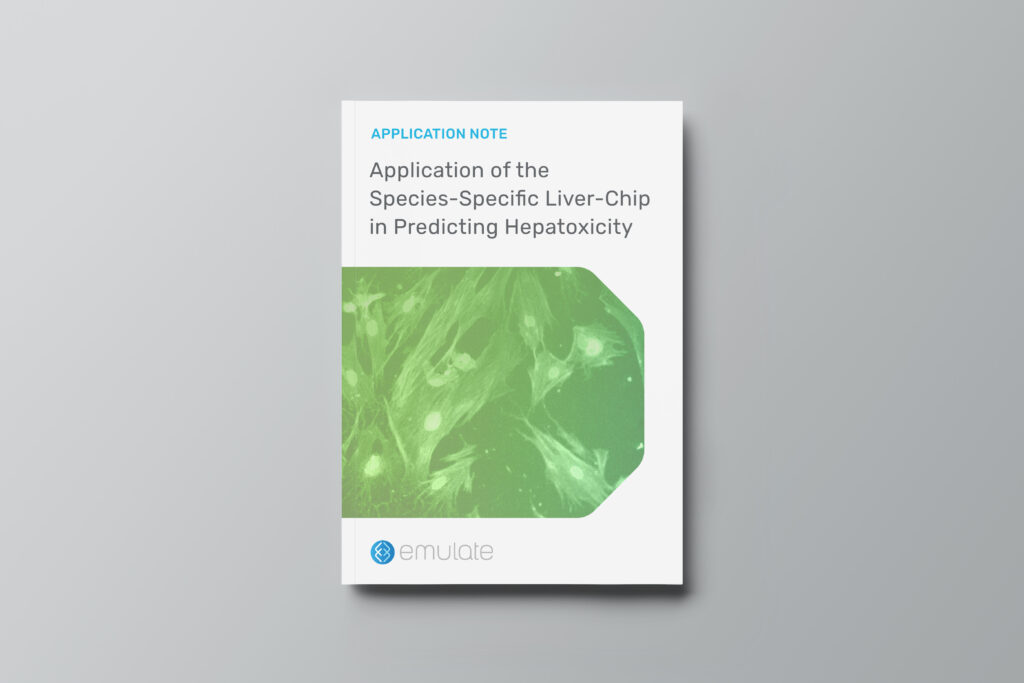Overview
An analysis of 150 drug candidates that caused adverse events in humans demonstrated that testing in rats and dogs only predicted 71% of toxicities in humans. The liver is of particular concern, as drug-induced liver injury (DILI) is the primary cause for withdrawal of drugs from the market and throughout the clinical development process.
Our Liver-Chip can help address this translational challenge by recreating in vivo-relevant liver function in a more physiological microenvironment than conventional cell-based models.
This application note reviews how researchers can use our Liver-Chip to:
- Predict diverse mechanisms of unexpected human toxicity for preclinical drug candidates
- Assess the human relevance of toxicity observed in preclinical animal studies
- Translate mechanism of toxicity for candidates with unexpected safety signals in the clinic

